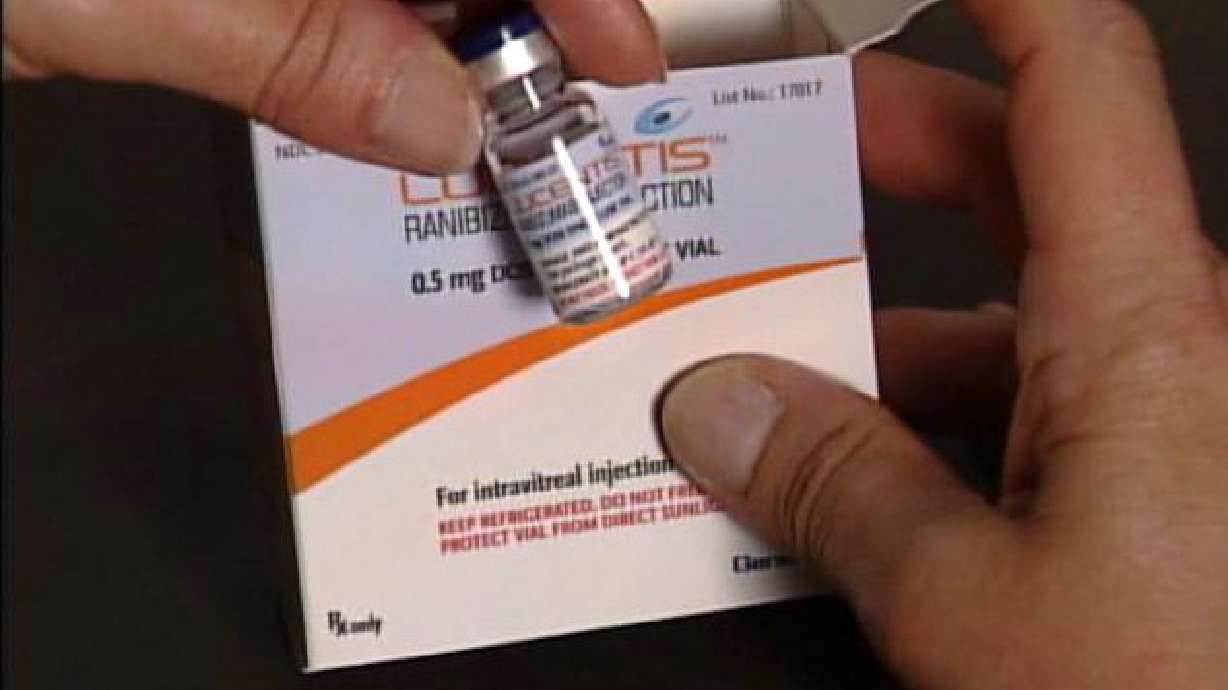Estimated read time: 2-3 minutes
This archived news story is available only for your personal, non-commercial use. Information in the story may be outdated or superseded by additional information. Reading or replaying the story in its archived form does not constitute a republication of the story.
Dr. Kim Mulvihill ReportingNew evidence today that a high-tech drug developed in the Bay Area offers significant hope to those afflicted with a disease that can cause blindness.
Donna Mackay has macular degeneration. She's worried about losing her sight.
Donna Mackay: "I have grandkids and want to see them grow up."
Macular degeneration is a consequence of a longer life. Roughly one in three Americans will develop a form of this potentially blinding eye disease by age 75, but new evidence shows a novel treatment offers real hope.
Robert Bhisitkul, MD, PhD, UCSF Asst. Prof/Clincal Ophthalmology: "In both of these trials, the impressive results, the very encouraging result is that we can really see in about 30 percent of the patients a visual improvement."
The treatment also stopped disease progression. Dr. Robert Bhisitkul of UCSF is part of research groups involved in the trials. The trials looked at Lucentis, a high tech drug developed by Genentech.
The drug works by blocking new blood vessels from growing underneath the retina.
Robert Bhisitkul, MD, PhD, UCSF Asst. Prof/Clincal Ophthalmology: "You sort of put out the fire, so to speak, of macular degeneration, preventing these abnormal blood vessels that grow underneath the retina from spreading, from bleeding, from leaking."
Lucentis was approved by the FDA to treat the disease, but it's expensive, at $2,000 a dose. Doctors have used another drug *off label* to treat the same disease. Avastin works in a similar way and is also made by Genentech. It costs $150 a dose.
Which is better?
Robert Bhisitkul, MD, PhD, UCSF Asst. Prof/Clincal Ophthalmology: "In my mind, the definitive clinical trial would be a head-to-head trial of Avastin to Lucentis to make sure Avastin is not inferior to the gold standard, which is Lucentis."
to date, no such trials have been done.
Dr. Bhisitkul says he receives no cash or research funding from the biotech giant.








